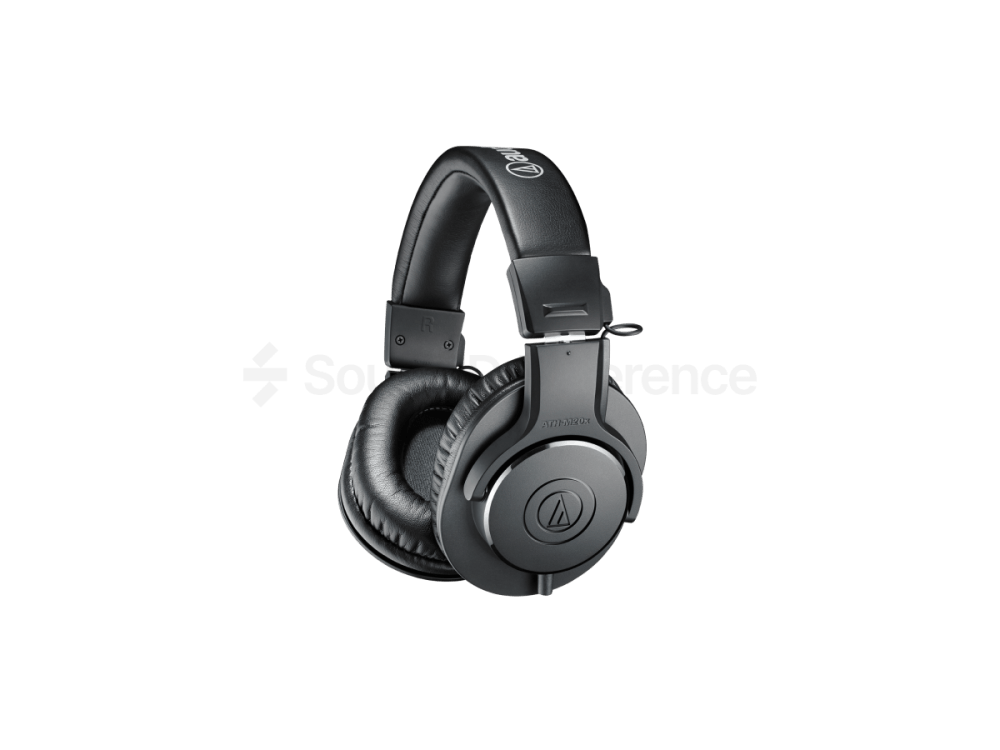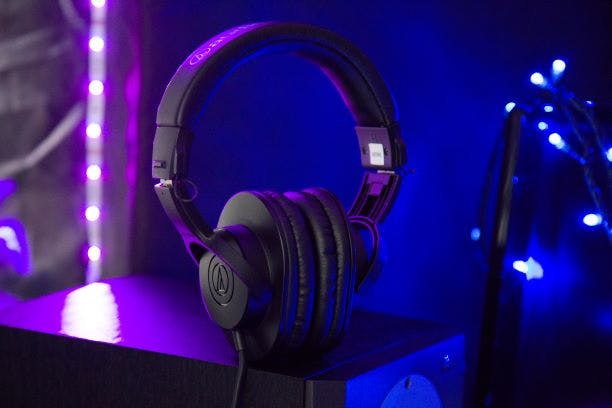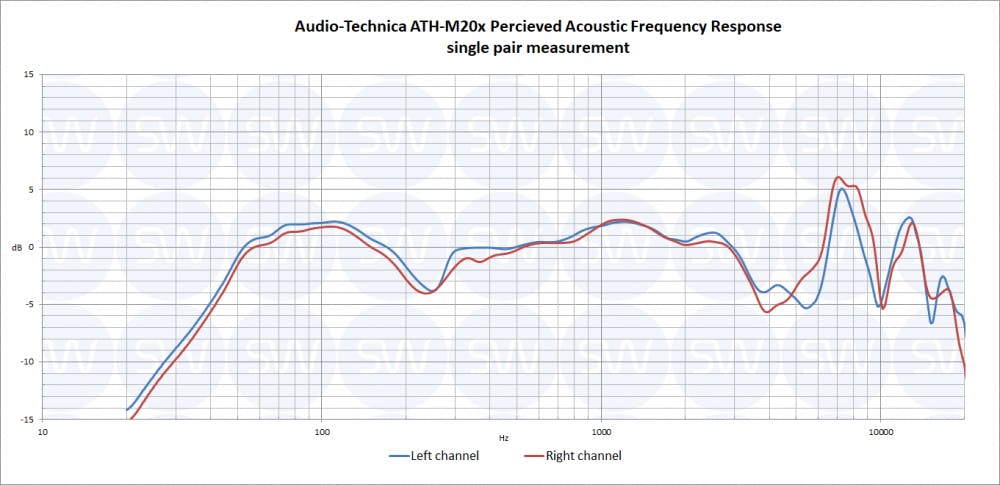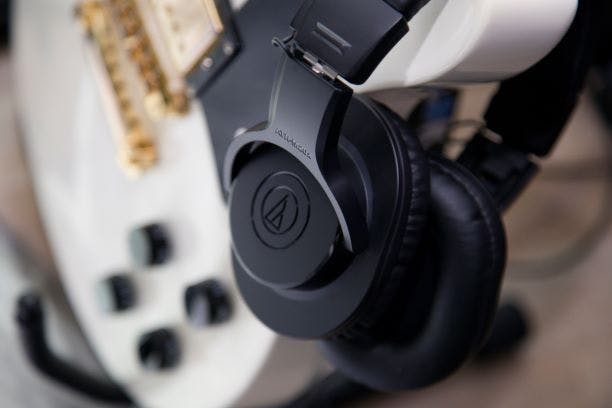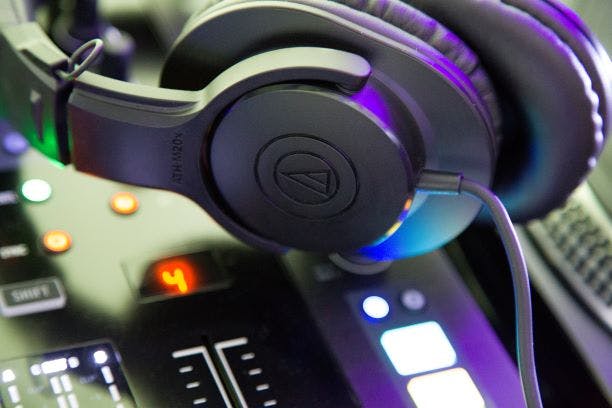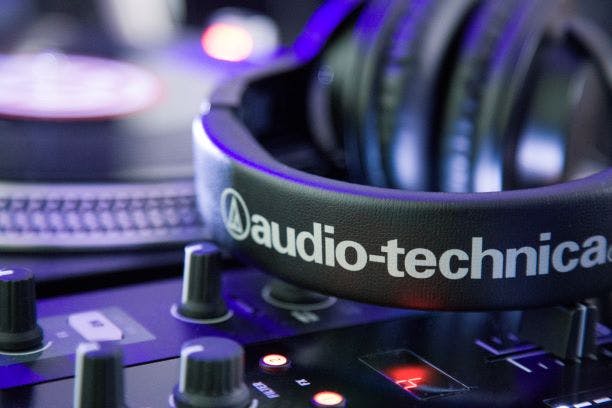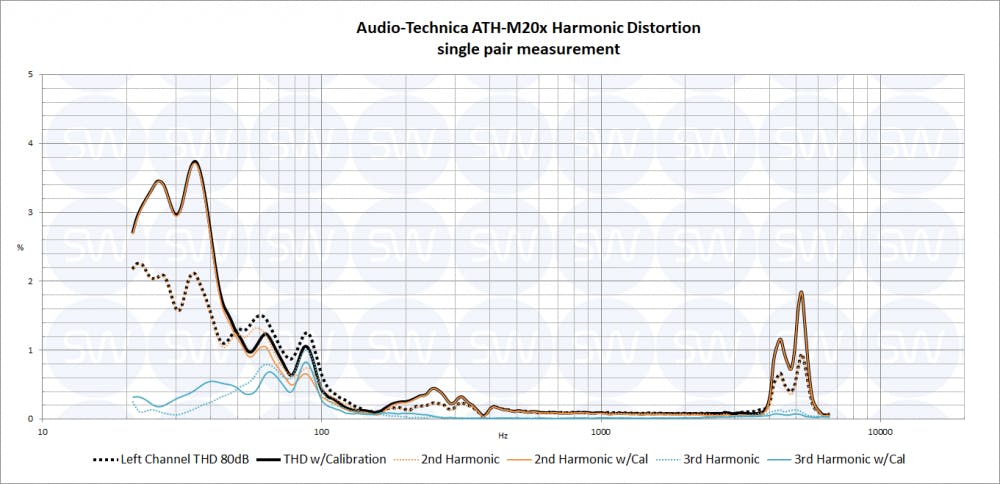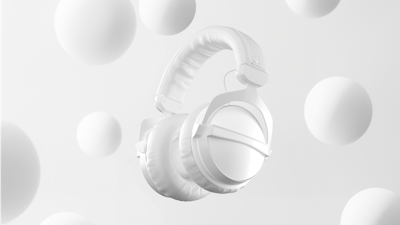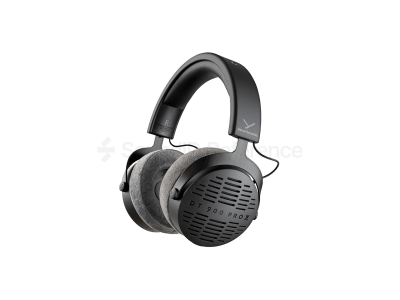Audio-Technica is one of our (and the rest of the world’s) favorite headphone manufacturers with many solid models in their portfolio. The wildly popular ATH-M50x seems to be omnipresent both in studios and on streets, yet the entry-level M20x in some ways beat them. Perhaps the ATH-M20x deserves to be more popular?
- One of the most neutral sounding closed backs out there
- Great value
Pros list with SoundID Reference calibration
- Improved sub-bass extension
- The mid-range dips and high frequency boost ironed out
- No detachable cable
- Comfort could be better
M20x’s are very light — just 190 grams without the cable. This is achieved by using lightweight plastic throughout the build, the only visible metal parts are the headband adjustment rails. The cable is not detachable, which is common in this price range, yet Monoprice manages to incorporate this in headphones that cost less than half of the ATH-M20x price. The headband is very good though, as are ear pads, which feel not that different from the ones you’ll find on pricier M series headphones. Despite the abundant use of plastic M20x give an impression that they’ll withstand some beating. It’s a shame the cable that connects the left and right ear cup before entering the headband, leaves a tiny fragment of cable exposed, which is a potential point of failure.
Audio-Technica has done an outstanding job tuning the M20x! At the time of writing these are among the top 7 closed-back headphones we have measured when it comes to neutral frequency response and by far the most affordable of the bunch! This makes them a terrific choice for computer-less setups where Sonarworks Reference calibration is not available. The high-mid cut and high frequency boost is a common trait for most headphones, yet M20x’s are positively conservative in this regard cutting and boosting only 5 dB respectively. The low end is almost flat down to 60 Hz, sadly they don’t extend lower, but that’s where calibration comes in to help.
On average channels are tightly matched and any deviations in the low end are extremely rare. While inconsistencies above 5 kHz are more frequent, they’re still minuscule and don’t skew the perceived stereo image. M20x blows M50x out of the water in this regard.
For the price, comfort is adequate, but don’t expect to work with them all night without any issues. Both headband and ear pads at first feel great but after an hour or so a short break is needed.
We’re talking about a very impressive frequency response at a price of about €50. This is a very serious tool for a very affordable price. Value is superb!
Looking at the graph, below 45 Hz you’ll find some relatively harmless 2nd harmonic distortion which in real world applications isn’t obtrusive. Same with the abrupt THD spike at 5 kHz. When it comes to THD, M20x’s outperform the more expensive M40x but are not as good as M50x and M30x. Obviously, these are not the cleanest headphones out there but harmonic distortion produces no audible artifacts and will not hold you back from crafting high quality mixes, especially if you’re using them calibrated.
How accurate and consistent is the correction effect among different listeners?
The perceived acoustic power frequency response for ATH-M20x will be nearly identical to any listener, this means that calibration as well will deliver highly accurate sound to everyone.
How much do they differ pair to pair in terms of frequency response?Manufacturing consistency is good and deviating pairs are rare. There’s a great chance that the model average profile will yield very accurate calibration for any pair.
Rating
Conclusion
ATH-M20x’s are very natural-sounding closed-backs fit for mixing and tracking work and pack a considerable bang for your buck. For genres that don’t require surgical precision in sub-bass region, M20x is arguably a better choice than M50x when it comes to studio work.
For more information about Audio Technica headphones, please read our other reviews – ATH-M40x, ATH-M60x, and ATH-R70x.
To calibrate your existing M20x or any other pro studio headphones, purchase our headphone calibration software in our store.
Final Rating
Calibration Enabled
Calibration
